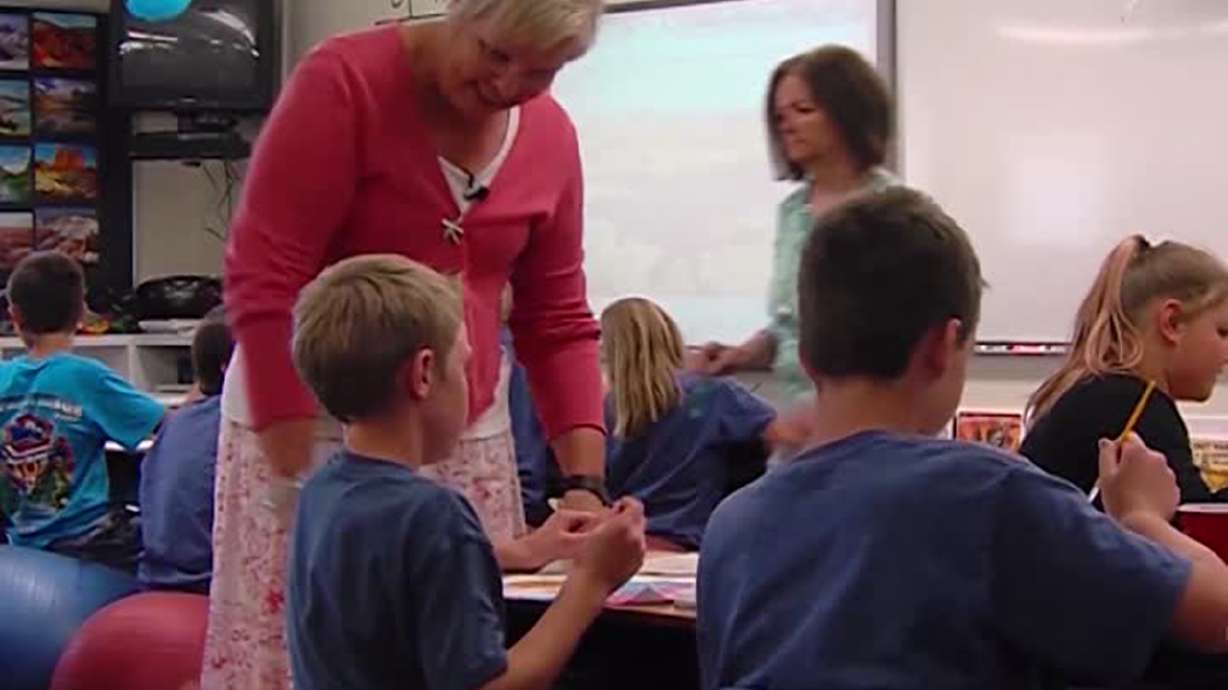Estimated read time: 2-3 minutes
This archived news story is available only for your personal, non-commercial use. Information in the story may be outdated or superseded by additional information. Reading or replaying the story in its archived form does not constitute a republication of the story.
SALT LAKE CITY — Labels and school grading systems tantamount to moving targets hamper the turnaround of failing schools in Utah, educators told members of the Legislature's Public Education Appropriation Subcommittee on Wednesday.
Schools already struggling to fill teaching positions have a particularly difficult time hiring staff at the state's worst-performing 3 percent of schools, as measured by state grading metrics.
The state's public school grading law has been changed every year since it was first passed by the Utah Legislature in 2011.
The result has been confusion and a churn of personnel at schools identified as low performing, said Granite School District Assistant Superintendent Linda Mariotti.
"In our district, the label has been so pejorative that it has impacted recruitment and retention" of teachers and administrators, she said.
Mariotti said she recruited a neighbor to return to teaching after she left the profession to raise her family.
The teacher was assigned to a low-performing school, and "she barely eked out the year and she's told me she'll never teach again."
John Zurburchen, assistant superintendent in the Davis School District, said one of the most difficult challenges has been keeping educators' trust amid changing rules and expectations.
"You get their trust once. After the second time, you lose a little trust. The third time, you have no trust, and that's been very difficult," he said.
Earlier this year, the Legislature passed SB234 but imposed a one-year moratorium on letter grades while the Utah State Board of Education implements a new accountability system.
Angie Stallings, deputy state superintendent for policy and communication, said the most recent changes to the law resulted from feedback from educators and local school agencies.
"There is no intent to continually change this program. We're hoping changes that were made this year will be the final changes, and we have a lot of confidence in the changes that were made," Stallings said.
It's always good to get more resources to schools that are in the most need, she said.
"If we have low-performing schools, the hope is we can provide them interventions and resources so they can raise their performance, and that's exactly why (Senate) President (Wayne) Niederhauser and the Legislature chose to implement the turnaround program, to support those schools that need it the most," Stallings said.
Zurburchen said the financial resources to assist low-performing schools appropriated by the state have been helpful, but schools also need a consistent metric.
"We need to know what the bar is that they need to cross, and the bar needs to stay there. It can't move," he said.
"They feel a little bit like Charlie Brown and Lucy. They can't kick the ball because it keeps moving. I love our teachers because they're still willing to come and do what they can. But I'd like not to move the ball as often."








